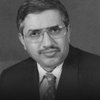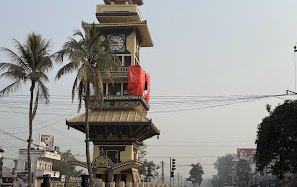After a period of decades, an unprecedented focus was globally made last December for 'Renewal' of gradually shrinking 'Democracy' by nearly 257 top democratic and scholarly brains, including 100participating democratic Heads of State or Governments, at a global "Summit for Democracy" (8-10 December 2021). The summit had three main objectives: a) countering authoritarianism, b) fighting corruption, and c) defending human rights. This was a first-ever unique and equally great event organized on the initiative of American President Joe Biden, based on his promise made during his Presidential inaugural Address in January last year. In response to the U.S. Government’s commitment to advance the Summit’s goals, President Biden shortly announced the establishment of a fund of US Dollar 424 million toward the Presidential Initiative, a landmark set of new foreign policy for advancing the ongoing work to bolster democracy, fight corruption, and defend human rights worldwide. In line with the Summit’s themes, the initial support mainly centers on five areas of work:
1) Supporting a free and independent media;
2) Fighting corruption;
3) Bolstering democratic reforms;
4) Advancing technology for democracy; and
5) Defending free and fair elections and political processes.
Excerpts: "Through their official interventions, leaders from 100 governments announced a wide range of commitments and pledges in support of democratic renewal centered on the Summit’s three themes of (1) strengthening democracy and defending against authoritarianism; (2) fighting corruption; and (3) promoting respect for human rights. These pledges included commitments to counter efforts to combat disinformation; strengthen electoral integrity; better promote the human rights of activists, women and girls, youth, LGBTQI+ persons, persons with disabilities, and marginalized populations; address drivers of inequality and inequity; strengthen enforcement of financial disclosures and close other vulnerabilities in the financial system that are exploited by corrupt actors; and invest in the development, use, and governance of technology that advances democracy and human rights. Non-governmental participants – among them leading activists and dissidents – echoed calls for new commitments in these areas, and implored participating governments to stand up to authoritarianism, kleptocracy, and repression."
Being conscious of the pressure coming from autocratic regimes that democracy and freedom do not ensure efficiency and delivery of services to the needy people, hence the gradual decline of liberal democratic values around the world, appearing in reports of even credible agencies like International IDEA and Freedom House, a renewed effort to strengthen democracy was thus needed. This was echoed in the speeches of the world leaders at the Summit. Reflecting on the messages of world leaders that 'Democracy doesn’t happen by accident, we have to renew it with each generation, and this is an urgent matter on all our parts, ...', the Prime Minister of Nepal Mr. SherBahadurDeuba also reiterated his full commitments to work toward democracy and human rights in his speech at the Summit. He had spoken the same earlier in Glasgow and later at the World Human Rights Day function hosted by the National Human Rights Commission in Kathmandu.
Key Question Now?
Will these commitments echoed by 100 democratic world leaders in Government, including UN Secretary-General, materialize in the post-summit phase, especially in developing countries like Nepal, and other South Asian or African nations? To what extent do the financially stigmatized political leadership and development partners of young democracies remain committed to their words? Generally, the country's political leaders, legislators, government authorities, constitutional bodies, UN agencies, civil societies and NGOs (and INGOs), media groups, and private sector (especially business community), including key donors, are not fully updated with the recent trends and developments. Openinstitutional dialogues on emerging issues are minimum. Lack of knowledge and use of advanced technology is another constraint.
Are most of the ill-equipped stakeholders, or a few of honest ones, especially the political leadership, prepared to start a new journey through commitments in principle and action toward sincerely carrying out the tasks imbibed in three onerous messages of the 'Summit for Democracy', ie, respecting human rights, fighting corruption and countering authoritarianism? The stigma of human rights violations, corruption and disrespect of rule of law is a very painful scratch of the wound on many politicians, who unknowingly or clandestinely shelter authoritarianism or perpetrators, have in some cases difficulties to confronting the blunt reality of breaching human rights ethics and corruption. This is normally very true in post-conflict societies where victims suffer and some perpetrators are put in power. Despite many such challenges, democracy has to prevail through reforms and resilience, as there is no better alternatives yet. The 'Summit for Democracy' is therefore an eye-opening event for reformers as well. Democratic constitutionalism, rule of law principles and human rights norms offer new tools and space to fight the ills of authoritarianism and corruption, eventually paving the path for peace, equality, and justice.
At this crucial moment of Nepal's democratic history, the National Human Rights Commission(NHRC) aims to accept the challenge of time and take this opportunity innovated by the "Summit for Democracy" in favor of human rights. NHRC will explore ways to analyze events, outcomes and floated ideas and try to work together with other partners and stakeholders to understand the underlying messages and importance of this historic "Summit for Democracy", firstly by initiating 'dialogues' among human rights communities, civil society groups, media and other key stakeholders. Secondly, NHRC could work towards developing a plan of action, on the one hand, to link up the outcome of the Summit with relevant aspects of its own sixth strategic plan, and share ideas with other human rights partners, including government authorities and political actors. On the other hand, NHRC will continue examining the relevance of the Summit for the larger benefit of the society, state institutions (eg, local federal entities), the international community (including UPR, SDGs, CCA-UNDAF Process), educational institutions(eg, universities) for maximizing the outcome of the Summit to strengthen human rights and the people.
Finally, since the Summit has put emphasis on the electoral process and media from the democratic perspective, it is important that the Summit outcome is tied up with the forthcoming elections of all 761 national, subnational and local governments through fairness and fearlessness in voting and representational rights that may help further strengthening the governance institutions with maximum level of inclusivity and gender representation.
Professor (Dr.) Surya Dhungel is a Human Rights Commissioner, Nepal.
Note: Your comments, notes and suggestions for developing effective post-summit strategy and coordination and action are most welcome (surya.dhungel@nhrcnepal.org) (21 January 2022)
- The Last Opportunity: The Imperative for Peace and Transitional Justice in Nepal
- Mar 26, 2025
- Revisiting Transitional Justice (Reflections In The Shadow Of History)
- Jan 29, 2025
- Constitutionality Of Parliament Dissolution
- Jan 12, 2021
- Contempt of Court In Nepal
- Feb 18, 2018
- Constitutional Puzzle
- Dec 22, 2017
















